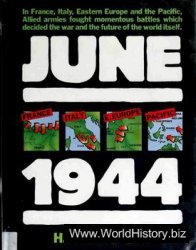The Union League was a Republican Party membership organization that originated in the border states of the North in 1862 to promote patriotism in support of the Northern cause. Based on the model of fraternal organizations so common in 19th-century America, over the course of the war the league spread to many areas in the North and moved South with Northern soldiers and found support among freedmen, freedwomen, and white yeoman farmers who were dissatisfied with the Confederacy. Later in Reconstruction the League was significant for its part in organizing African-American political action.
In the North, the league bolstered sagging enthusiasm for the war effort. Many prominent citizens joined branches in cities like New York, Boston, and Philadelphia. In Midwestern states like Illinois the Union League movement stood strongly against rising copperhead sentiment in 1862 and 1863. For example, the St. Louis branch of the league resisted any attempts to bring Missouri into the Confederate column. Like one of its apolitical counterparts, the Free Masons, the league offered many social benefits. The men who belonged were known for their undying devotion to the Union cause. The Union League played an important role in mobilizing support for President Abraham Lincoln’s reelection bid in 1864.
In the South the league played an equally important role as it became a stronghold of the Southern Republican Party, while educating newly freed slaves about the democratic process and helping them to harness their newly acquired public power. The Southern branch was considered radical in its positive approach to African-American political participation in the South. There was strong resistance among white Southerners to any association enrolling freed slaves into an oath-bound association for the express purpose of making voting Americans of them. The National Council of the Union Leagues, headquartered in Washington, D. C., attempted to set a moderate tone for the Southern branch. The council, which funded the league, wished to establish a strong Republican Party in the South and to encourage political involvement for freedmen. At the same time, it wanted the Southern Union League to restrain its militancy, in order to avoid alienating white Southerners.
While the Union League functioned primarily as a political machine for the Republican Party, it provided education and social and economic support as well. The league hosted wide-ranging political discussions and debates and promoted schools and churches on the local level. It also petitioned against local officials hostile to freed members and supported African American claims for veterans’ benefits. Finally, the Southern league offered African Americans advice in financial planning, employment, legal issues, and politics.
Despite the enthusiastic participation of black Southerners in the Union League, the organization’s existence was short-lived. Its obvious support of African-American political and social rights alienated interested white farmers. By 1869, membership numbers were in decline. The Ku Klux Klan targeted league members and meetings as part of a campaign to disenfranchise freed people. That violence, in combination with the rise of redemption governments in the South, spelled the end of the Union League in the South. The failure of the Union League is reflective of the larger failure of Reconstruction to successfully establish a place for Southern African Americans and the Republican Party in the South’s political landscape. The Union League clubs in the North continued to flourish, however, and remained stalwart in their support of the Republican Party to 1900.
Further reading: Michael W. Fitzgerald, The Union League Movement in the Deep South: Politics and Agricultural Change during Reconstruction (Baton Rogue: Louisiana State University Press, 1989); Frank L. Klement, Dark Lanterns: Secret Political Societies, Conspiracies, and Treason Trials in the Civil War (Baton Rouge: Louisiana State University Press, 1984).
—Ruth A. Behling




 World History
World History









